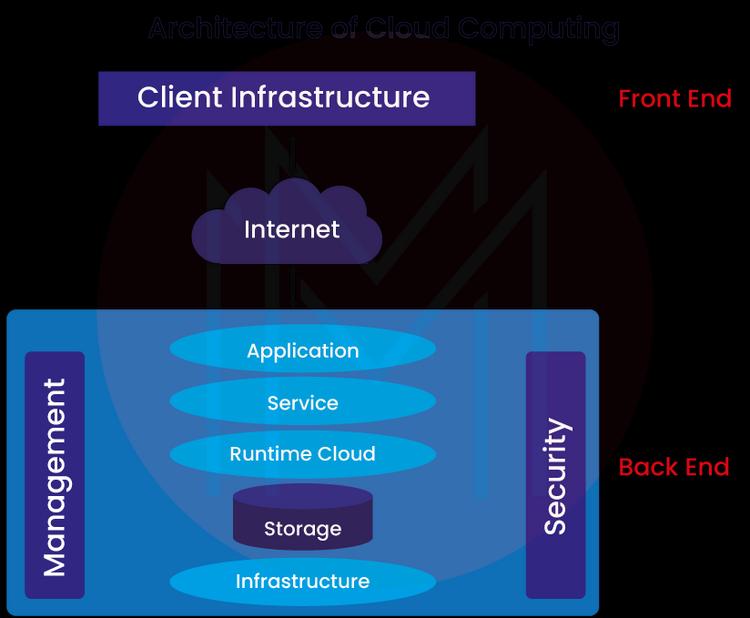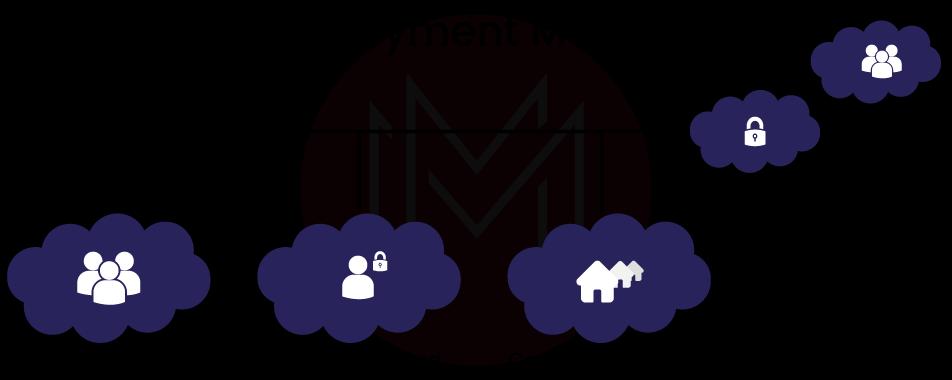One of the top providers on the market today is Google Cloud Platform. It is a cloud platform that enables users to access computing services and cloud-based systems.
Here are some facts to know about Google Cloud:
A collection of cloud computing services known as the Google Cloud Platform uses the same infrastructure as Google's consumer products, such as Gmail, Google Search, and YouTube. Several companies in the Fortune 500 use Google's cloud computing services, known collectively as "Google Cloud."
Now, we'll discuss some of the most important questions about the Google Cloud Interview based on:
Top 10 GCP Interview Questions and Answers
- What is Google Cloud Platform?
- What are the features of the Google Cloud Platform?
- What kinds of security features does the cloud offer?
- What are the different parts of the Google Cloud Platform?
- Describe the various layers of cloud architecture.
- What is the benefit of API in the cloud domain?
- What is your familiarity with Google Cloud SDK?
- What are the GCP cloud storage libraries and tools?
- What is autoscaling in GCP?
- What do you mean by Google Kubernetes?
Google Cloud Interview Questions For Freshers
1. What is Cloud Computing?
Cloud computing provides on-demand IT resources via the Internet at a pay-as-you-go rate. Rather than owning, purchasing, and maintaining physical data centers and servers, you can use a cloud provider such as Amazon Web Services (AWS) to gain on-demand access to technology services such as storage, computing power, and databases.
2. What is Google Cloud Platform?
Google Cloud Platform is the name of the company's infrastructure that runs in the cloud. This group of services covers many other topics, such as big data, networking, machine learning, computing, virtual machines, and storage. Google's user products, like Gmail, YouTube, and Google Search, use the same infrastructure these services use.
| If you want to enrich your career and become a professional in Google Cloud, then enroll in "Google Cloud Platform Training". This course will help you to achieve excellence in this domain. |
3. What are the benefits of using the Google cloud platform?
- GCP has much better prices than other cloud service providers.
- Your information and data can be stored on Google Cloud servers from anywhere.
- GCP has better service and performance in hosting cloud services.
- Google Cloud makes updating servers and security information easier and faster.
4. What are the features of the Google Cloud Platform?
- Ability to make your machine types with different processor, RAM, and HDD configurations.
- In-place disc resizing can be performed with zero interruption to service.
- Tools for managing a wide range of operations come preloaded in GCP.
- One can choose between two different kinds of hosting. Users can use either an App Engine (a PaaS) or Compute Engine (IaaS).
5. What are some common use cases for the Google Cloud Platform?
The Google Cloud Platform has multiple applications, some of which are creating websites and applications, maintaining databases, and providing hosting services.
6. What is the difference between GCP and AWS?
Google Cloud is a collection of Google's public cloud computing services and resources, whereas AWS is an Amazon-managed and developed secure cloud service. Google Cloud Storage is provided by Google Cloud, whereas AWS provides Amazon Simple Storage Services.
7. What kinds of security features does the cloud offer?
Some essential security features of the cloud include:
- Identity Management: It paves the way for the approval of service applications.
- Access Control: Users can regulate how other users access
- Authorization and Authentication: This security feature ensures that only authenticated and authorized users can access apps and data.
[ Check out Cloud Security Architecture ]
8. What are Cloud Computing System Integrators?
The cloud may be composed of a wide variety of complex components. The process of designing the cloud and integrating its many components into a hybrid or private cloud network is one of the components of the cloud system integrator strategy. This strategy also includes other components.
9. What are the different parts of the Google Cloud Platform?
- Machine Learning Engine on Google Cloud
- Google Compute Engine (GCE)
- Google Drive Storage
- Cloud Container Engine by Google
- Google Cloud Platform Test Lab
- Dataflow in Google Cloud
- Cloud App Engine by Google
- Google Cloud Job Search
- Service Google BigQuery
- Endpoints in the Google Cloud.
10. What are the different components of cloud architecture?
The following are the key components of cloud computing architecture:
- Front-end platform
- Back-end platform
- Cloud-based delivery.
11. Describe the various layers of cloud architecture.
The various layers of cloud architecture are as follows:
- Physical Layer: This layer comprises physical servers, networks, and other things that can be managed and controlled in the real world.
- Platform Layer: This layer contains services such as the OS and applications. It serves as a development and deployment platform.
- Infrastructure Layer: This covers networking, virtualized servers, and storage resources.
- Application Layer: End-users interact directly with the Application Layer. This layer is configurable and scalable. Metadata lets customers customize the software.
12. What does "EUCALYPTUS" mean specifically in the context of cloud computing?
" EUCALYPTUS " is an open-source cloud computing infrastructure. The full form of EUCALYPTUS refers to "Elastic Utility Computing Architecture." EUCALYPTUS allows developers to quickly and easily create private, public, and hybrid cloud environments. You can take advantage of the cloud and all it offers by establishing your own data center in the cloud.
13. What do you mean by Google Compute Engine?
The Google Cloud Platform relies on the Google Cloud Engine as its backbone. This Google-hosted IaaS allows users to run their own Windows or Linux virtual machines. Long-term storage and KVM make it possible for virtual machines to function.
14. What are the various methods for authenticating the Google Compute Engine API?
Google Compute Engine API authentication can be done in different ways:
- Through client library
- Using OAuth 2.0
- Conveniently with an entrance token.
15. What are the most used open-source cloud computing platforms?
- Apache Mesos
- OpenStack
- Cloud Foundry
- KVM.
GCP Interview Questions For Experienced
16. What are the different kinds of software as a service (SaaS)?
The two different types of Saas are:
- Single-tenant multi-tenancy: This SaaS model gives you access to dedicated resources that you aren't required to share with anyone else.
- Multi-tenancy of fine grain: Resources are shared among multiple tenants in this SaaS deployment even though the functionalities are unchanged.
17. What is the benefit of API in the cloud domain?
- You don't need to make the whole program.
- You can easily send information from one app to another.
- It's easy to make apps and connect them to cloud services.
- It connects two applications safely.
18. Explain the difference between scalability and elasticity in cloud computing?
- Scalability: The ability to handle more workload in the cloud is known as scalability. It can be accomplished by adding more servers or making room for them within existing ones.
- Elasticity: Elasticity is the capability of adding or removing virtual machines on demand, allowing you to optimize resource usage and reduce costs.
19. What are service accounts?
Service accounts are project-related special accounts. They are used to authorize Google Compute Engine to perform tasks on behalf of the user, granting access to non-sensitive data.
20. What is your familiarity with Google Cloud SDK?
The Google Cloud Software Development Kit (SDK) provides developers with a set of utilities for working with Google Cloud Platform-based services and data. It comprises three separate command line utilities: gcloud, gsutil, and BQ command. The Google Cloud SDK is only compatible with particular OS and versions of Python (2.7.x), such as Windows, Linux, and macOS. There may be other, more specific requirements for the other tools in the set.
21. List major components of the Google Cloud Platform?
Some significant components of GCP are:
- Tools for processing data, including Google's App Engine and the Kubernetes container orchestration system.
- Various networking-related parts, including Virtual Private Clouds (VPCs), Cloud Firewalls, and more.
- There's a database and a storage system.
- Substances of Big Data.
- Tools for management, including a tracer, logger, and debugger.
- Software for managing one's identity in the cloud, including Cloud IAM and Cloud Identity.
- Efficiency and expert apparatuses.
- Programmer resources include a Cloud-based testing lab and a container builder.
22. What are the various cloud computing deployment models?
The development of cloud computing needs different development models, just like the development of other complex and new technologies. The list of the same is given.
- Community Cloud
- Private Cloud
- Public Cloud
- Hybrid Cloud.
23. How does the cloud provide on-demand functionality?
Cloud computing was made as a technology so all its users could use it whenever and wherever they wanted. With the latest tech and easy access to apps like Google Cloud, the idea is much easier to implement than it used to be. With Google Cloud and other similar apps, users can access their cloud-stored files from any device, anytime, or anywhere in the world.
24. What is the pricing model in the GCP cloud?
You only pay for the resources you actually use in GCP due to its pay-as-you-go pricing model. No money or commitment is needed right away. In addition, a budget can be made to assist in managing expenses.
25. What are the GCP cloud storage libraries and tools?
Cloud storage on Google's cloud platform relies heavily on the JSON API and the XML API. Additionally, Google also offers the following to engage with cloud storage.
- The Google Cloud Platform Console can perform basic operations on buckets and objects.
- Client libraries for cloud storage that are available in various languages.
- The Gsutil Command-line Tool is a command-line interface (CLI) for cloud storage.
26. What do you think "Managed VMs" means when it comes to GCP?
Google managed VMs, or virtual machines, in this context. Google takes care of the infrastructure, including the host operating system, virtualization layer, and hardware, when you launch a virtual machine on GCP using Managed VMs. It can simplify your workflow and allow you to concentrate on developing and deploying applications.
27. What's the difference between PaaS and IaaS?
- IaaS: IaaS, which stands for "Infrastructure as a Service," is a type of cloud computing that lets users access a virtualized computing environment. This can include storage, networking, and servers, among other things.
- Paas: PaaS, which stands for “Platform as a Service.” is a type of cloud computing that gives users access to a platform for testing, building, and deploying applications. PaaS can make it easier to build and deploy apps because it takes care of much of the infrastructure behind them.
28. What is autoscaling in GCP?
Auto-scaling is possible with the Google Cloud Platform's managed instance groups. Managed instance groups are collections of identical instances that were created from the same master template. The easiest way to auto-scale in Avi Vantage is to scale based on how much CPU a group of virtual machine instances uses.
29. What is the use of a bucket in Google Cloud Storage?
Buckets are simple containers that are used to store data. Everything you put in Cloud Storage must be in a "bucket." There is no limit on how many buckets you can make or delete. But buckets can't be put inside each other as directories and files can.
30. What is meant by Google Cloud APIs?
Google Cloud APIs are most useful when used to automate processes in a language of your choosing. With the help of APIs, multiple Google services can talk to one another and be incorporated into third-party applications. Another way to think of it is as an intermediary through which end users can access cloud-based resources and applications.
31. What are the connections between Google Compute Engine and Google App Engine?
Google Compute Engine is Google's product for providing IaaS (infrastructure as a service). Google App Engine, on the other hand, is Google's PaaS offering in the category of platform services. They are a great pair and complete each other. Compute Engine creates custom business logic, while App Engine is used to power websites and mobile backends. It can even serve as the host for a private data storage system.
Most Common GCP FAQs
1. What is binary authorization in Google Cloud?
Cloud Run and GKE (Google Kubernetes Engine) use binary authorization to ensure that only trusted container images are used. You can use Binary Authorization to ensure that only trusted authorities sign images. At the same time, they are being built to ensure that signature validation is done when deployed.
2. What do you mean by Google Kubernetes?
You can use Google's infrastructure to deploy, manage, and scale containerized applications with the help of Google Kubernetes Engine (GKE). A cluster of computers (Google Compute Engine instances) makes up the GKE environment.
3. What is Google Cloud Vertex AI?
With Vertex AI, you get a unified set of client libraries, APIs, and graphical user interfaces for AutoML and AI Platform. Users of Vertex AI have access to AutoML and can tailor their training to their specific needs. Vertex AI allows you to train models in any way you like, then store, deploy, and request predictions from those models. Using pre-trained and custom tools on a unified AI platform can hasten the processes of deploying, creating, and scaling machine learning models.
4. What kinds of databases are compatible with GCP?
MySQL, PostgreSQL, MongoDB, and BigTable are just a few database systems that can be used with GCP.
5. What does BigQuery mean?
The Google Cloud Platform provides a service called BigQuery, which serves as a warehouse for large businesses. The product has an in-memory data analysis engine and machine learning capabilities, making it highly scalable and affordable. You can quickly and easily perform real-time data analysis and generate insightful reports using a data analytics engine. It's not just internal data that BigQuery can analyze; it can also process data from external sources like object storage, transactional databases, and spreadsheets.
Summary
Google cloud platform offers the same broad range of global hardware services scale as AWS, in addition to some Google-specific features and integrations. It is known that Google Cloud interviews have challenging questions, which are very difficult to respond to during an interview without any preparation. Candidates who put in the time and effort to prepare for their upcoming interviews will benefit from reviewing the list of important Google cloud interview questions for Cloud Platform jobs that were provided above. Make sure you're well-prepared for the interview, and good luck!
 On-Job Support Service
On-Job Support Service
Online Work Support for your on-job roles.

Our work-support plans provide precise options as per your project tasks. Whether you are a newbie or an experienced professional seeking assistance in completing project tasks, we are here with the following plans to meet your custom needs:
- Pay Per Hour
- Pay Per Week
- Monthly
| Name | Dates | |
|---|---|---|
| Google Cloud Training | Mar 07 to Mar 22 | View Details |
| Google Cloud Training | Mar 10 to Mar 25 | View Details |
| Google Cloud Training | Mar 14 to Mar 29 | View Details |
| Google Cloud Training | Mar 17 to Apr 01 | View Details |

Madhuri is a Senior Content Creator at MindMajix. She has written about a range of different topics on various technologies, which include, Splunk, Tensorflow, Selenium, and CEH. She spends most of her time researching on technology, and startups. Connect with her via LinkedIn and Twitter .



















